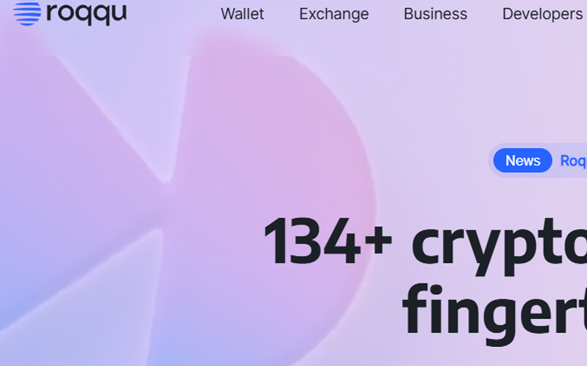In a recent development in Nigeria’s ongoing efforts to regulate the crypto space, the Economic and Financial Crimes Commission (EFCC) has filed a seven-count charge against Afriq Arbitrage System (AAS), a cryptocurrency trading platform, and its CEO, Jesam Michael.
The agency alleges that the defendants engaged in investment fraud amounting to a staggering $854,416.36 and N590 million, sparking concerns about the risks associated with unregulated cryptocurrency investments in Nigeria, as reported by Nairametrics.
According to the EFCC’s affidavit, Michael and his company are accused of inviting the public to deposit funds with Afriq Arbitrage System Limited between September 2022 and June 2023 in Abuja, without being authorized to take deposits. This act allegedly contravenes Section 44(1) of the Banks and Other Financial Institutions Act, 2020.
The EFCC further alleges that Michael and his company engaged in specialized financial services, including investment management, without a valid license. The anti-graft agency plans to call witnesses from financial institutions, the Central Bank of Nigeria (CBN), and the Securities and Exchange Commission (SEC) to testify that the defendants lacked regulatory approval.
During the bail hearing, the EFCC argued that Michael was arrested while attempting to leave the country and is unlikely to return to face trial due to the gravity of the charges and weight of evidence. The Commission also stated that it has received additional petitions from several other victims of the alleged offences.
Key Details and Highlight of the Charges
- Charges: Seven-count charge, including investment fraud and operating without authorization
- Amount Involved: $854,416.36 and N590 million
- Defendants: Afriq Arbitrage System (AAS) and CEO Jesam Michael
- EFCC’s Allegations: Lack of regulatory approval, operating without license, and alleged investment fraud
- Next Steps: Bail hearing adjourned to allow EFCC time to respond to further affidavit
There are seven count charges against Michael and his company brought under the relevant provisions of various laws, including the Money Laundering (Prevention and Prohibition) Act and the Advance Fee Fraud and Other Related Offences Act No. 14 of 2006. Two of these charges read:
- “That you, JESAM MICHAEL UBI, and AFRIQ ARBITRAGE SYSTEM LIMITED, between October and December 2024 in Abuja, within the jurisdiction of this Honourable Court, converted the cumulative sum of N590,000,000.00 (Five Hundred and Ninety Million Naira), being part of the funds generated from the sale of properties recovered from Oluwasesan Abayomi—namely, Ologolo Street, off Lekki-Epe Expressway, and No. 1 Nnamdi Azikiwe Road, Lakowe Golf Estate, Lekki, Lagos—knowing that the funds constituted proceeds of unlawful activity. You thereby committed an offence contrary to Section 18(2)(b) of the Money Laundering (Prevention and Prohibition) Act.”
- “That you, JESAM MICHAEL UBI, and AFRIQ ARBITRAGE SYSTEM LIMITED, sometime in 2022 in Abuja, with intent to defraud, induced Ladi Musa Audu to deposit the sum of $844,416.36 USDT into the Afriq Arbitrage System investment scheme, under the false representation that the investment was safe and refundable upon request. You knew this representation to be false, thereby committing an offence contrary to Section 1(2) of the Advance Fee Fraud and Other Related Offences Act No. 14 of 2006 and punishable under Section 1(3) of the same Act.”
This case highlights the EFCC’s efforts to crack down on financial crimes and protect investors. As the matter progresses, it remains to be seen how the defendants will respond to the allegations and whether they will be granted bail.
Read also: Crypto Fraud: Nigeria’s EFCC and Toronto Police recover $225k from fraudster.
Red Flags: Identifying Questionable Crypto Projects
While the allegations against Afriq Arbitrage System and Jesam Michael must be proven by the EFCC before a court of law, crypto investors and members of the general public should be cautious when throwing their money into any crypto projects with promise of returns on investments. Here are some red flags you should always watch out for:
- Unrealistic promises: Be cautious of projects promising unusually high returns or guaranteed profits, as these are often indicative of scams or Ponzi schemes.
- Lack of transparency: Be wary of projects with unclear or anonymous leadership, vague business models, or unreleased whitepapers.
- Unregistered operations: Verify if the project is registered with relevant regulatory bodies, such as the Securities and Exchange Commission (SEC).
Best Practices for Crypto Investors
- Conduct thorough research: Research the project’s team, technology, and market potential before investing.
- Verify regulatory compliance: Check if the project complies with local regulations and has necessary licenses. In the absence of licenses in the relevant jurisdiction, conduct due diligence on their corporate existence, business history, team credibility, and compliance status.
- Use reputable platforms: Use well-established and reputable crypto platforms that do not operate in the dark, involve illegalities, knowingly facilitate illicit transactions, or turn a blind eye on criminality.
- Diversify investments: Where you are convinced that the boxes above check out, it is advisable that you still spread your investments across different asset classes to minimize risk.
- Stay informed: Stay up-to-date with market news and regulatory developments to make informed investment decisions.
Conclusion
Nigeria’s regulatory landscape for cryptocurrency is evolving, with the Investments and Securities Act (ISA) 2025 recognizing virtual assets and investment contracts as securities. The SEC has also released guidelines for digital assets, emphasizing the need for registration and compliance. By being aware of these factors and taking a cautious approach, investors can reduce their exposure to questionable crypto projects and protect their investments.
As the Afriq Arbitrage System and Jesam Michael case unfolds, investors and other stakeholders are watching closely to see how the courts will navigate the complex intersection of cryptocurrency, financial regulation, and investor protection.
Read also: New crypto scam strategies: How to spot and overcome them

Discover more from Crypto Asset Buyer
Subscribe to get the latest posts sent to your email.





